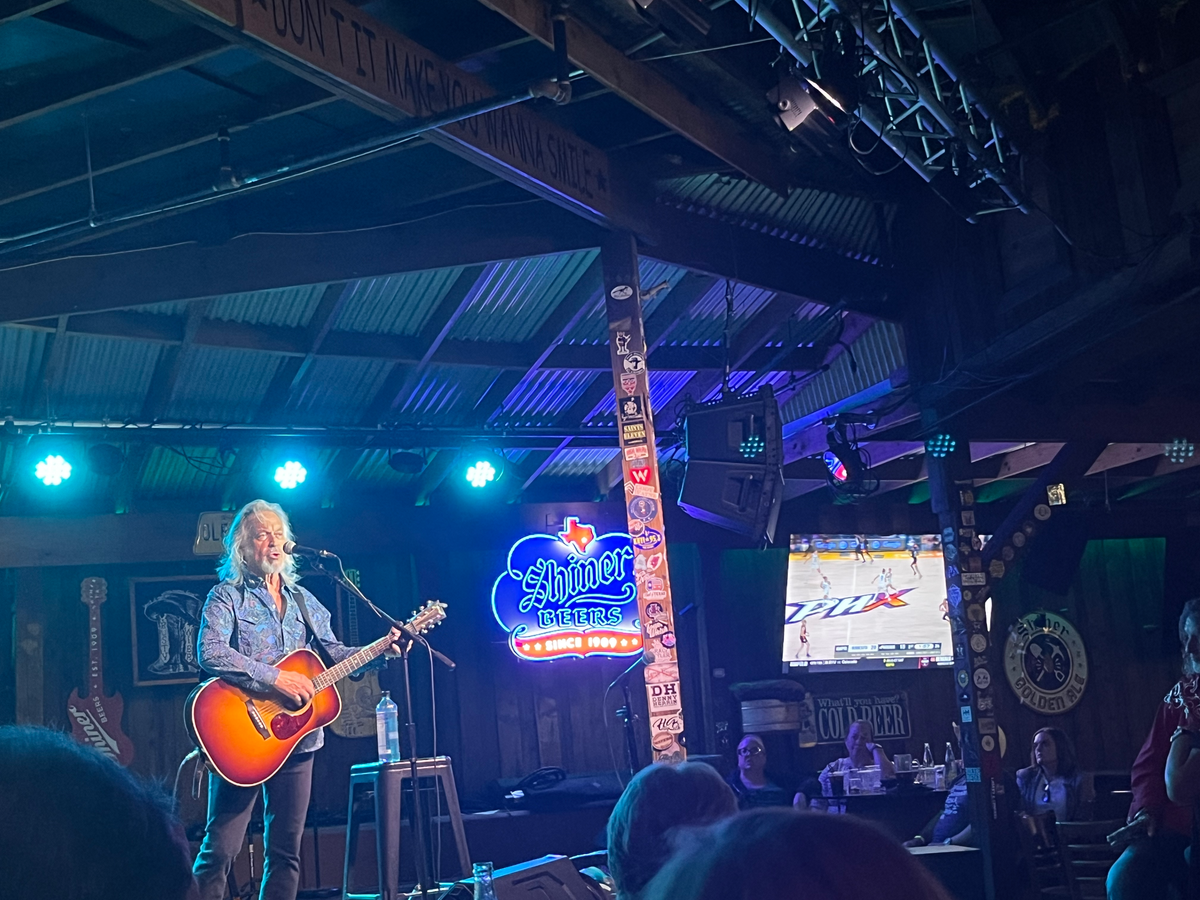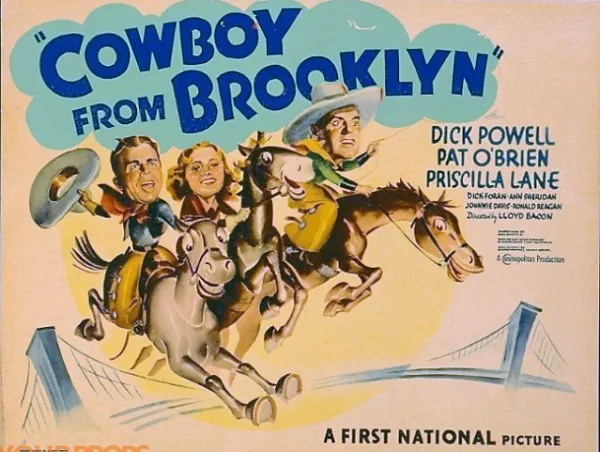Issue #118: A Weekend With Iconic Songsmiths
Small rooms, acoustic guitars, and country tradition without pretension

Perhaps some of you have also experienced this phenomenon: For about fifteen years now, I've spent plenty of happy evenings at shows where I am one of the youngest people in the room. I know it can't last much longer, the passage of time being what it is, but starting with seeing jazz legends in New York and now often seeing country/folk/Americana artists of a certain age in little rooms in Texas and sometimes Nashville, I've been surrounded mostly by people of a different generation. It's not really an intentional thing, just a byproduct of perpetually being much more interested in musical nostalgia than what's coming next (hardly a strength — especially in this line of work — but something I've found hard to shake).
This past weekend, in my quest to cram in as many pre-baby shows as possible without getting drained by tons of standing or otherwise onerous audience set-ups, I was able to catch sets by two old heads who live in Nashville but were taking swings through tiny Texas "listening rooms": Jim Lauderdale and Radney Foster, guys who have primarily made their names working in the background but have been doing so for so long that they've become minor musical celebrities (at least within some particular communities of country fans). Lauderdale and Foster were both working alone at these shows, armed only with their axes and a deep well of songs they'd written — often most famously recorded by others.
Seeing older artists, especially as in these cases at very intimate venues and without the cushion of a band or accompanist to ease the pressure of all those eyes and ears, can be fraught. I've seen people distressingly intoxicated, rambling incoherently and more often just projecting a gloom and bitterness — that they're not more known or respected or famous, that a lifetime's worth of effort and creativity has only really landed them where they started: shilling their music for a few dozen people who vacillate on a boozy wave between attention and chatter.
But Lauderdale and Foster both played with care and pride, consummate professionals who — and I hesitate to say this, because it's so loaded — brought their audiences back to the core of country tradition, that "three chords and the truth" maxim rendered in its purest possible form by people standing alone onstage singing their songs, their way. They didn't have to argue that it was "real" country because the performances, traditional but not intentionally retrograde, emotive but not exaggerated and effortlessly skilled did it for them.
Lauderdale, who I am extremely late to but have come to love through his recent music, The Buddy and Jim Show on Sirius and catching his set at least year's AmericanaFest, is probably my platonic ideal of old country guy: mellow (he does Tai Chi, as anyone who follows him on IG knows) hippie who is extremely nerdy about country history and as comfortable singing straight grass as he is honky-tonk and pop country tunes (check his backing vocal credits).
Playing at Love And War In Texas — a Plano venue that's been around long enough to have hosted pre-fame Maren Morris and Miranda Lambert — he started 45 minutes late and didn't stop, performing song after song for well over two hours (at which point we had to go let the dog out), affably taking requests, basically introducing people in the quite intimate audience to one another, crediting his co-writers but rarely going too far down memory lane as he played songs recorded by George Strait, Patty Loveless, and the Chicks. At one point, a couple requested "Take Me Home, Country Roads" — thankfully, I guess, with a wad of cash, though fairly offensive to treat someone of Lauderdale's stature like any other person with a guitar playing covers for tips on a Friday night — and he very diplomatically played it despite not knowing any of the words beyond the first verse and chorus before continuing through his seemingly ad hoc set list.
There's something so specifically country about Lauderdale's voice, that twang that I think too often gets attributed to having some kind of rural (or faux-rural) accent. But the twang isn't just about the way you talk, though certainly the North Carolina native speaks with an understated lilt. For Lauderdale, it's something about how he's able to translate that Appalachian high lonesome sound through all iterations of country music — its slurs and barely perceptible embellishments, its artful wavering and nasally purity. The closest comp for me is Lee Ann Womack, who is decidedly East Texan — not Appalachian — but brings some of the same traditional country flourishes (they have actually duetted, and she recorded "King of Broken Hearts"!). The whole show was a treat, and ranged from "Artificial Intelligence" (go listen to it!!) to "I Feel Like Singin' Today," which he recorded with Ralph Stanley more than 25 years ago. He gave me a smile when he played "That Kind Of Life (That Kind of Day)," which has just about the sweetest first verse imaginable:
When a baby tastes a little bit of sunshine
Kicks their legs and bounces up and down
Grins, laughs and everything is so fine
We wanna keep 'em that way for a while
They all grow up and everything is different
The way that history comes into play
I hope their hopes will come through while they're growing
And they'll have that kind of life, that kind of day
Foster's set was a bit more polished, a little less casual — but still, the feeling of watching a master at work pervaded. There are a lot of assumptions that come along with the conceit of country music (see: my piece on Nashville), and I think few are more pervasive than the idea that it is not difficult to make. That the songs are simple and formulaic, that it doesn't take any particular skill to perform. But Foster (and Lauderdale) are craftsmen as well as creatives, honing memorable lyrical gems out of the mundane and the cliché — rendering familiar feelings in new light that feels like it's been shining forever. Foster, of Del Rio — West Texas, near the border — comes to country with a whole different sense of its tradition.
Like Lauderdale, though, he found a place not as a troubadour but as a songwriter in Nashville's machine, laundering his bona fides into pop hits for more famous artists without any real sense of compromise. Both he and Lauderdale make country music, I think, the way we tend to think about it here — without drawing lines around what counts and doesn't, with a genuine curiosity and enthusiasm for all the ways people come to it. WIth reverence for its traditions that doesn't hinder appreciation of those who might subvert them!
He dutifully rolled out his hits for Keith Urban, Pat Green and (naturally) the Chicks (they've got good taste!) — though he did not play "Never Say Die," sadly! — complete with the stories about how they got to No. 1, or to the artists who made them. "Kiss Me In The Dark," a personal favorite, hit particularly hard — and it's great to imagine two straight guys on a back porch writing one of the most sultry country songs around. Foster left out the fact that he produced that entire Randy Rogers Band album, a feather in his cap as not just a top-tier Nashville songwriter but an architect of modern red dirt.
Mostly, his singing and playing, like Lauderdale's just delivered in a way that seems uncomplicated but really requires decades of practice and — somehow even more difficult — a willingness to humble yourself before an audience that might seem depressingly familiar over and over and over. A willingness to make it seem like you're relishing the chance to play songs you've played thousands of times with the energy it takes to make them sound alive. Foster and Lauderdale both make that, the hardest part, seem effortless — one of the greatest gifts an artist can give to their audience, and they're still giving it night after night.





